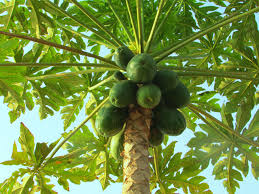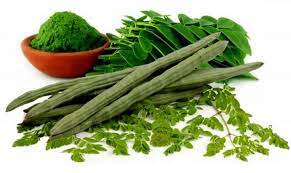
Pepper belongs to the Family Solanaceae, which is an important group of vegetables. Pepper generally originates from Central America. Capsicum annum is from middle America (Mexico) while Capsicum frutescens is from the northern half of south America to part of central America and Caribbean area. Pepper played a significant early role in the development of food in America.
Food and Agriculture Organization (FAO) statistics estimate world production of capsicum peppers in 2001 at twenty-one million, three hundred thousand (21,300,000) tonnes from a harvested area of one million, six hundred thousand (1,600,000) hectares (ha) (average yield 13.4 t/ha); China is the largest producer with ten million (10,000,000) tons, followed by Mexico (1.9 million t) and Turkey (1.5 million t).
Production in tropical Africa is estimated at one million (1,000,000) tons, with Nigeria (715,000 t from 90,000 ha) and Ghana (270,000 t from 75,000 ha) as the largest producers.
Rising domestic demand, coupled with a drop in exports, continues to set the trend for the pepper market. The main suppliers of the commodity to the global market are Vietnam, India, Indonesia and Brazil; while the major destinations of its export are the US, Europe, Japan and Australia.
The price of pepper in Nigeria has been subjected to seasonal fluctuation over time. In South Western Nigeria, pepper has been massively conveyed from Northern Nigeria despite the fact that it is also grown in the South West. This indicates that there is a great and urgent need for increased production of pepper in Nigeria and most especially in the South-Western Nigeria.
The domestic demand for pepper has increased over time which has resulted in the decline in the quantity of pepper being exported in several producing countries. This signifies that there is need for increase in the supply of pepper to make up for the increase in the domestic demand and to also give room for exportation.
It is worthy of note that despite the production level of pepper in Nigeria, pepper is still being imported. General increase in pepper yield in Nigeria could be enhanced by the cultivation of improved cultivars, and intensification of cultural practices.
Benefits of Pepper
§ Pepper is used as a spice in many dishes.
§ Pepper is used as decoration in food, to add flavor and colour
§ It is also used to provide relief for several ailments. It can be found in topical creams that are intended to reduce muscle pain, inflammation and itching.
§ Peppers can act as a heart stimulant which regulates blood flow and strengthens the arteries, possibly reducing heart attacks.
§ It has soothing effects on the digestive system, offers relief from symptoms of colds, sore throats and fevers, circulation, especially for cold hands and feet, and as a hangover remedy. Fresh peppers are an excellent source of calcium and vitamin C.
§ It can be used to regulate blood sugar
§ Hot chili peppers might help fight prostate cancer.
There are wide varieties of pepper all over the world but many of them are produced based on regions and environmental conditions.
Varieties commonly produced in Nigeria include:
1. Bird peppers—Atawere (Capsicum frutescens)
This is a very hot variety of pepper, it is short in length. Both ripe and unripe bird peppers are used for making pepper sauces. It is used while unripe, usually still green in colour for preparing pepper sauce for unpolished rice (locally known as ofada rice). The sauce is richly garnished with locust beans.
2. Cayenne pepper or red pepper—Sombo (Capsicum frutescens)
This is a very long and thin variety. It is a bit mild as regards to its hotness.
3. Atarodo (Capsicum annum)
This is the most common pepper variety in the market. The smaller sized ones taste more hot than the bigger sized ones.
4. Tatase (Capsicum annum)
This pepper variety is usually very mild in taste and very red in colour. It could be added to food or sauce as a colouring agent to bring out a bright red colour and sometimes to reduce hotness.
Pepper is one of the most important spices used in making most Nigerian food. There is hardly a complete meal without the use of at least one variety of pepper.
Consumption of pepper accounts for about twenty percent (20%) of the average vegetable consumption per person per day in Nigeria. It is used extensively in food flavouring in the daily diet of over two hundred million (200,000,000) Nigerians irrespective of their socio-economic status.
It is used in the preparation of soup and stew, which are among the major essential complements of staple foods based on cereals and root crops and also forms remedies for toothache and sore throat.
The market for the product is very widely spread and bulk of the household's restaurants, eateries, caterers, and clubs use it regularly.The demand for the processed products is increasing day by day due to its convenience to handle and use.There are good export prospects as well.






















